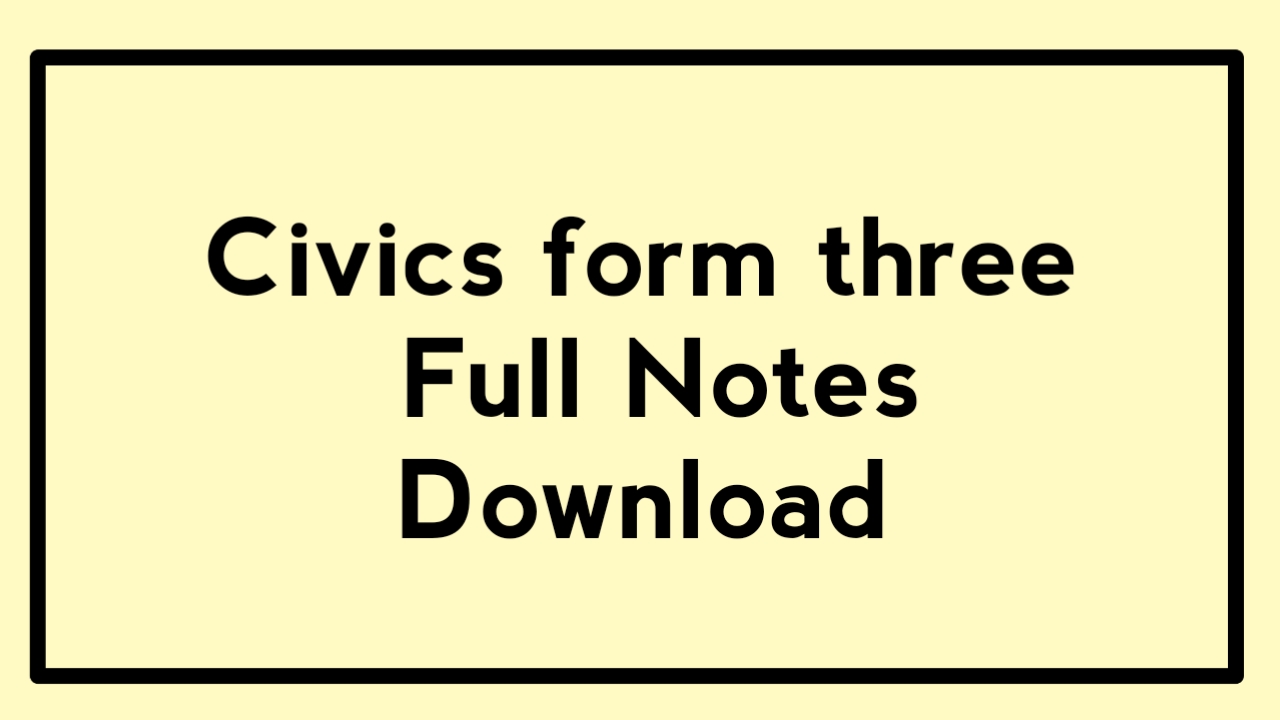Civics is an essential subject that helps students understand the structure, functions, and responsibilities of their government and society. For Form Three students, grasping these concepts is crucial as it lays the foundation for becoming informed and engaged citizens.
DOWNLOAD CIVICS FORM THREE FULL NOTES
1. The Concept of Civics
Civics is the study of the rights and duties of citizenship and the workings of government. It includes understanding how laws are made, how government functions, and the roles and responsibilities of citizens. This subject encourages students to think critically about their role in society and how they can contribute positively to their community.
2. The Structure of Government
Form Three Civics typically covers the different branches of government and their functions:
- Executive Branch: This branch is responsible for implementing laws and is headed by the President or Prime Minister, depending on the country. It includes various government departments and agencies that administer day-to-day operations.
- Legislative Branch: Comprising elected representatives, this branch is tasked with making laws. It includes parliaments or congresses, where representatives debate and pass legislation.
- Judicial Branch: This branch interprets laws and ensures justice. It includes courts and judges who resolve disputes and enforce laws.
Understanding how these branches interact and balance each other is crucial for comprehending the functioning of a democratic system.
3. The Role of the Citizen
A key focus in Form Three Civics is the role of the citizen in a democratic society. This includes:
- Rights: Citizens are granted various rights such as freedom of speech, the right to vote, and the right to a fair trial. Understanding these rights helps students appreciate the freedoms they have and the importance of protecting them.
- Responsibilities: Along with rights, citizens have responsibilities such as voting in elections, obeying laws, and participating in civic activities. These responsibilities ensure that individuals contribute to the well-being and governance of their society.
4. Elections and Voting
Students learn about the electoral process, including how elections are conducted and the significance of voting. This includes:
- Election Procedures: How candidates are nominated, how elections are held, and how votes are counted.
- Voter Participation: The importance of participating in elections to influence government decisions and ensure representation.
5. Local and National Government
Form Three Civics often explores both local and national government structures. Understanding the differences and relationships between these levels helps students appreciate how policies are made and implemented at various levels.
- Local Government: Responsible for managing community services and local issues, such as schools and public transportation.
- National Government: Deals with broader issues like national security and foreign policy.
6. Current Issues and Civic Engagement
Finally, students are encouraged to engage with current civic issues and understand their impact on society. This includes discussing contemporary challenges, such as environmental issues, economic policies, and social justice concerns. Engaging with these topics helps students understand the real-world application of civics and fosters a sense of responsibility and activism.
Form Three Civics is a crucial part of education that equips students with the knowledge to understand and engage with their government and society effectively. By studying the structure of government, the role of citizens, the electoral process, and current issues, students are prepared to become informed and active participants in their communities.
